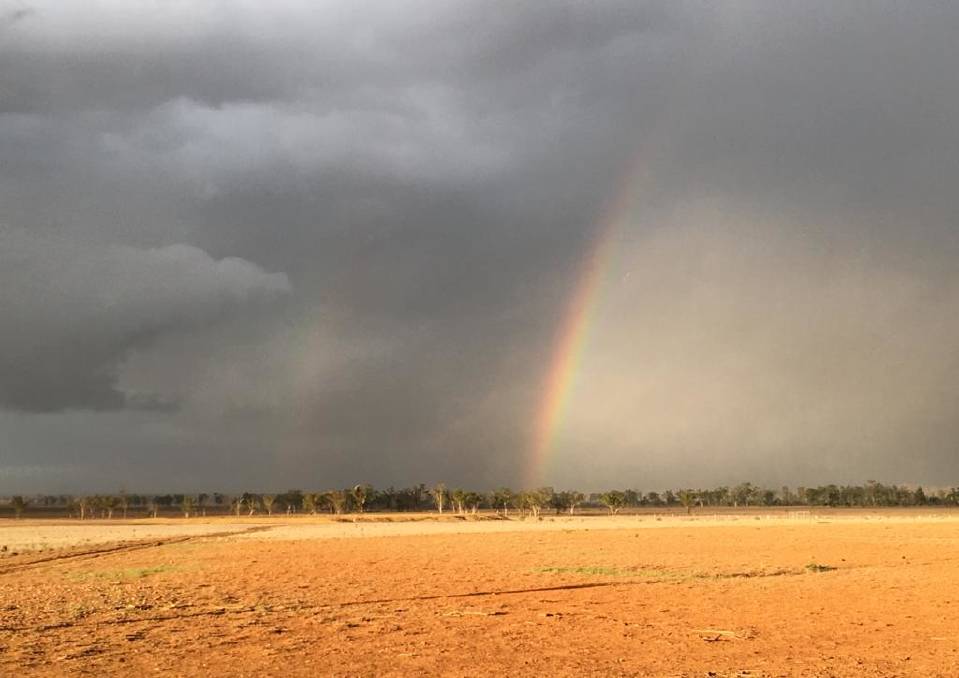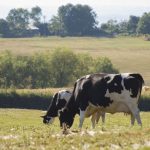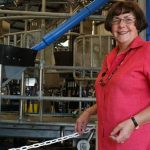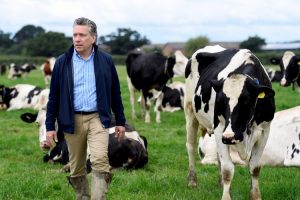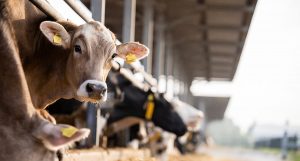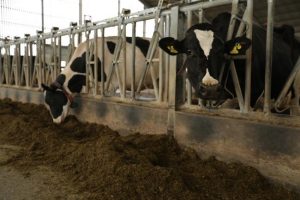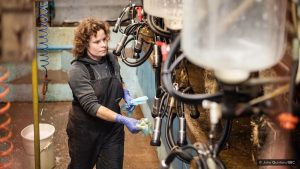
This will allow for their accompanying recommendation for one fifth of agricultural land to be taken out of production and planted instead to trees or bioenergy crops.
The cost of this tree planting would be met by a levy on high-emitting industries such as aviation.
Not surprisingly, the committee also recommends that the government should pour a large amount of money into research and development into ‘novel protein alternatives’.
All of this is contained in a new report titled Land Use: Policies for a Net Zero UK published on 23 January 2020 by the Committee on Climate Change (CCC).
This latter body was created under The Climate Change Act 2008, an Act of the Parliament of the United Kingdom.
The Act itself is the enabling legislation for the UK to become a low-carbon economy and provides ministerial power to introduce measures necessary to achieve a range of greenhouse gas (GHG) reduction targets.
The purpose of the committee is to advise the government on setting carbon budgets, how to reach these targets and report on progress.
It was the CCC who recommended net zero GHG emissions by the UK by 2050, a commitment adopted by the British Parliament in June last year.
Given Britain’s membership of the EU and strong leaning of the British ‘Establishment’ toward the EU, it should not come as any great surprise that CCC policy appears closely aligned with that of the EU.
Readers might recall this column’s coverage last October on the massive investment by the EU into development of a meat analogue industry as a pathway to delivering on their GHG emission and sustainability targets.
Between 2010 and 2013 the EU provided over (e)1 billion for research into high-quality plant-based ‘meat’ products under the ‘LIKEMEAT’ project and in 2017 announced a further (e)1 billion investment in innovation in the agri-food sector under its Horizon 2020 programme.
In late 2018 the European Commission presented its EU Protein Plan, a blueprint for the production of alternative proteins for human consumption.
This development of new meat alternatives dovetailed neatly with the EC’s Food 2030 Initiative to deliver a climate-smart, sustainable food system for Europe.
The necessity of EU’s sustainable food system goal stems from a belief that meat production is the principal driver of natural resource depletion, in particular its estimated usage of 40pc of global arable land, 36pc of crop calories produced and 29pc of agricultural freshwater use.
There is also the claim that lower levels of meat consumption are validly reflected in better-health dietary guidelines.
Add in the claim that livestock methane supposedly amounts to 14.5pc of all human GHG emissions and it is clear from the EU perspective that cows have to go and people will need to reduce meat consumption.
Similar logic it seems in the CCC recommendation.
But with Britain now poised to leave the EU, the relevance of CCC as a mimic of EU climate policy may come into question.
Counter claims refute much of the resource depletion argument and instead assert that cattle have an essential role to play in sustainable agriculture.
On the human health front, recent scientific review of the many hundreds of studies that suggest red and processed meat are bad for you has found little to support such claims.
Published last October in Annals of Internal Medicine, co-authors Dr Aaron Carroll and Dr Tiffany Doherty found that the recurring theme was one of weak evidence supporting the association between red meat consumption and colon cancer and cardiovascular disease.
On the methane story, a 2018 CSIRO study into yield values has found that the single global calculation is not reliable and therefore inappropriate for use in Intergovernmental Panel on Climate Change (IPCC) greenhouse accounting methods.
A big part of the reason why people voted to leave the EU in 2016 was for Britain to return to being its own master in matters of policy.
The challenge now for CCC is to demonstrate that it is cognisant of the wider arguments and capable of being a truly independent advisor as required under its mandate.
Patchy rain brings hope
Another week of welcome rain and it is becoming apparent that a lot of gaps are filling in and forming the makings of a season.
More will be needed in follow up but for now there is the sheer joy of just seeing the country come to life.
One major processor I spoke to early in the week said there will be some short-term disruption and with everyone trying to plug the gaps we can expect to see a bit of urgency in the markets this week.
Townsville will likely be affected to some extent after the cattle presently on hand are worked through.
But all things considered, the supply situation elsewhere for the next month is in reasonable shape.
That is due largely to heavy numbers of space bookings carried through from last year. Some of those cattle were breeders which people did not want to sell and those can be expected to drop out if they haven’t already done so.
But the biggest grief is expected to come in feeder procurement.
Enquiries for sale of heavy feeder types will likely fall silent and the current full position of feedlots will erode very quickly. Weights are down and it has been a struggle to get feeders to average 400kg.
Central Qld producers in particular who do not normally sell light cattle can now be expected to hold on to those cattle.
Whether they will come as 450kg feeders in winter or later still as bullocks is not known but they will certainly come as heavier cattle.
